Often described as a technical marvel, Sony’s latest flagship packs a unique combination of notable features, such as a physical shutter button, a high-quality manual camera app, and a 120Hz 4K HDR OLED display.
In terms of audio, the Xperia 1 III, in collaboration with Dolby, promises a powerful, immersive and clean playback through its speakers, and a 360-degree Spatial Sound upmix with headphones. Customized microphone and speaker settings are also available to enhance the gaming experience, as well as a good old headphone jack to keep the audio latency to a minimum. An audio mixer allows the user to balance voice and game levels separately when recording gameplay videos.
Finally, in some regions, the pinnacle of the Xperia 1’s third generation comes with a pair of WF-10000XM3 — a truly excellent model in the wireless noise canceling earbuds market.
Audio specifications include:
- Stereo speakers (bottom center and top center)
- Headphone jack
- Intelligent wind filter
- Hi-Res Audio
About DXOMARK Audio tests: For scoring and analysis in our smartphone audio reviews, DXOMARK engineers perform a variety of objective tests and undertake more than 20 hours of perceptual evaluation under controlled lab conditions. This article highlights the most important results of our testing. Note that we evaluate both Playback and Recording using only the device’s built-in hardware and default apps. (For more details about our Playback protocol, click here; for more details about our Recording protocol, click here.)
Test summary
Scoring
Sub-scores and attributes included in the calculations of the global score.
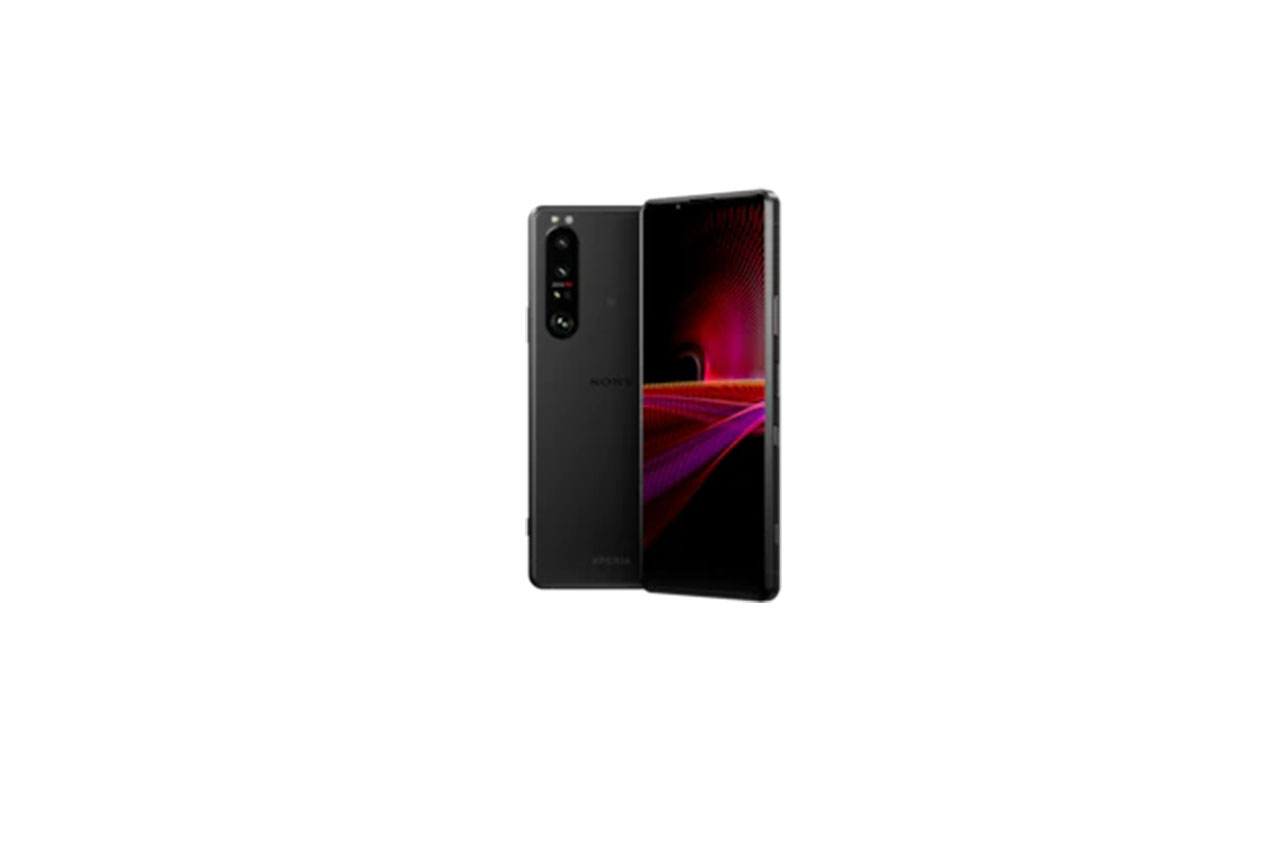
Sony Xperia 1 III


 143rd
143rd 77th
77thPlayback
Pros
- Clear and natural tonal balance
- Appreciable stereo wideness
- Precise attack and unaltered dynamics
- Very well centered stereo balance
Cons
- Lack of low-end and low-midrange body
- Below average punch
- Below average localizability
- Volume performances below expectations
- User-induced artifacts
Recording
Pros
- Natural frequency response in life and selfie videos with clean mids allowing a good vocal reproduction
Cons
- The frequency response as well as dynamics are considerably impaired when recording in loud environments.
With an overall score of 66, Sony’s cutting-edge flagship only secures a mid-pack position in our DXOMARK Audio ranking. That said, the Xperia 1 line’s audio quality has improved over the generations, starting from an overall score of 45 for the first iteration and then reaching a 57 for its second iteration.
The Xperia 1 III speakers deliver a clear tonal balance, natural midrange, appreciable stereo wideness, an exceptionally well-centered balance between left and right channels, and well-preserved dynamics overall. On the other hand, playback would benefit from more presence in both the high-end and the lower part of the register, which would have provided more brilliance, warmth, and punch, as well as an improved localization of the sound sources within the sound field. Although its speakers are supposed to be “40% louder,” the phone’s volume performance is disappointing: maximum volume isn’t loud enough, minimum volume isn’t well-tuned, and volume steps aren’t evenly distributed. In terms of use cases, the phone’s speakers are best suited for gaming.
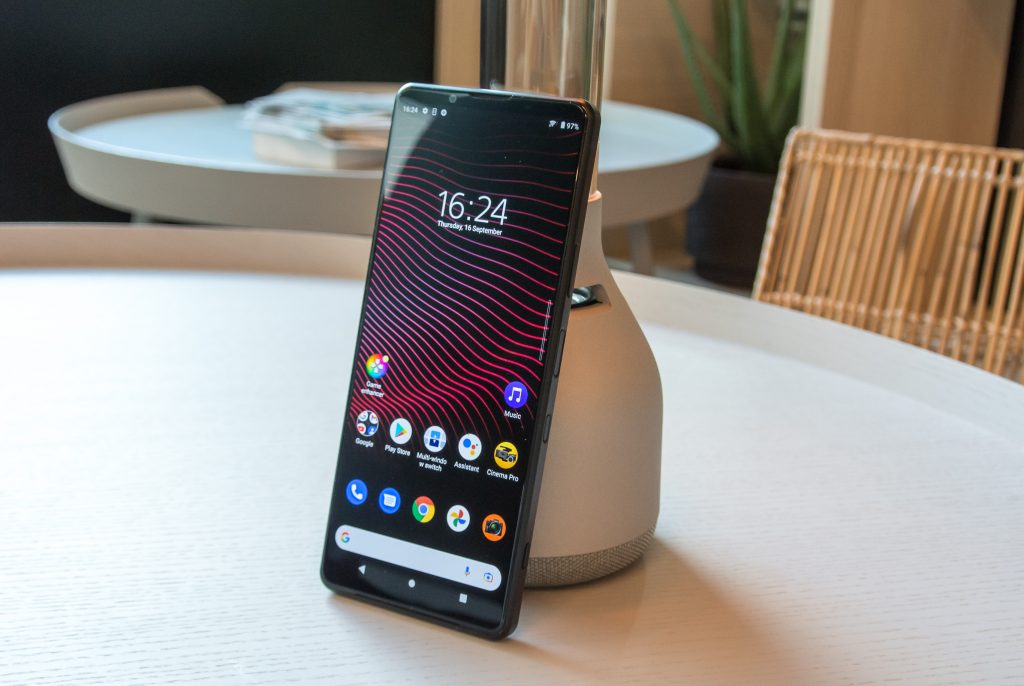
Life and selfie videos fared best in our recording tests, thanks to a natural tonal balance, clear midrange, correct signal-to-noise ratio, good spatial attributes, and very few artifacts. Meeting room recordings (content mainly vocal in calm environments) also scored above average. The type of situation for which the Xperia 1 III is less adept at is certainly recording in loud surroundings (for example a concert) because of the phone’s inability to handle high sound pressure levels, which induce strong compression and bass distortion.
Sub-scores explained
The DXOMARK Audio overall score of 66 for the Sony Xperia 1 III is derived from its Playback and Recording scores and their respective sub-scores. In this section, we’ll take a closer look at these audio quality sub-scores and explain what they mean for the user.
Playback
Timbre tests measure how well a phone reproduces sound across the audible tonal range and takes into account bass, midrange, treble, tonal balance, and volume dependency.
The Xperia 1 III delivers a natural yet somewhat thin tonal balance. As shown in the graph below, the speakers’ bass and low midrange responses (up to 600 Hz) are weaker than that of both its competitors. The lack of both high- and low-end extension and power result in a relatively flat and neutral rendering, which would have benefited from greater brightness and strength.
What the phone lacks in the extremes of the spectrum, it makes up for in the midrange, which sounds open and natural, despite a slight lack of warmth procured by the low mids — it may be noted that a clear high midrange is the main signature of the Xperia’s line. As the volume increases, the lower register gradually disappears, which emphasizes the midrange prominence, and thus a more nasal overall sound.
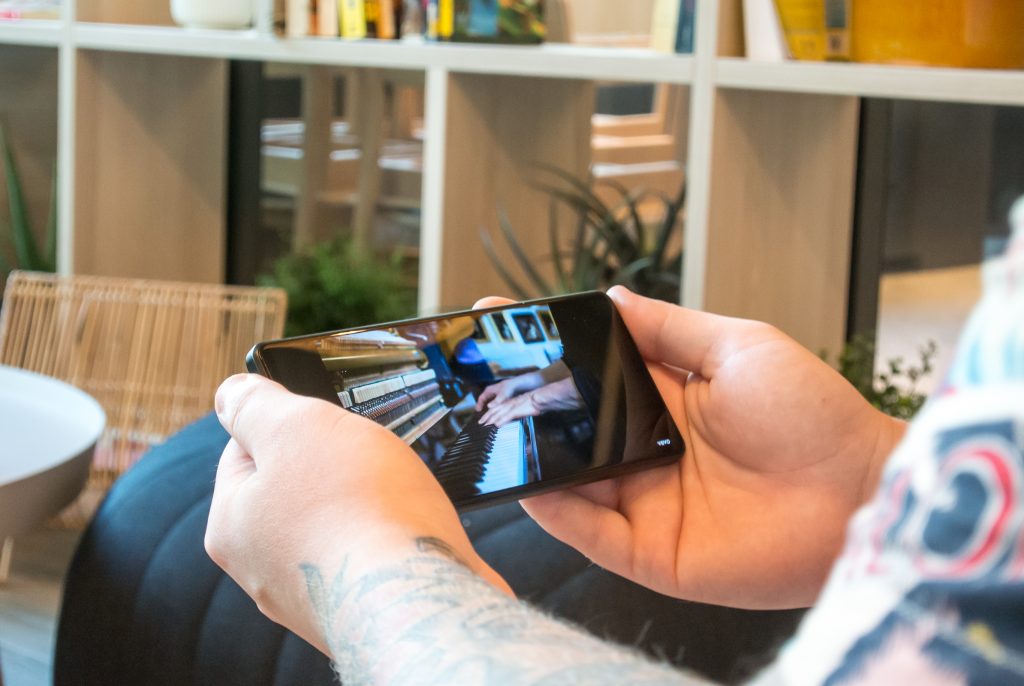

Dynamics
Sony Xperia 1 III
65
81
DXOMARK’s dynamics tests measure how well a device reproduces the energy level of a sound source, and how precisely it reproduces bass frequencies.
Dynamics attributes are average, with fairly precise (and even sometimes predominant) attack, decent punch, and a laudable volume consistency overall.
Attack can occasionally be impaired by minor distortions, and punch is a bit lacking due to the recessed low-end energy. This also makes it hard to assess the bass precision, which seems nevertheless to remain rather accurate.

Spatial
Sony Xperia 1 III
60
88
The sub-attributes for perceptual spatial tests include localizability, balance, distance, and wideness.
Thanks to the speakers’ position, the balance between left and right channels is perfectly centered. While the sound field is pleasantly wide, it does not rotate accordingly in inverted landscape, when using the music app.
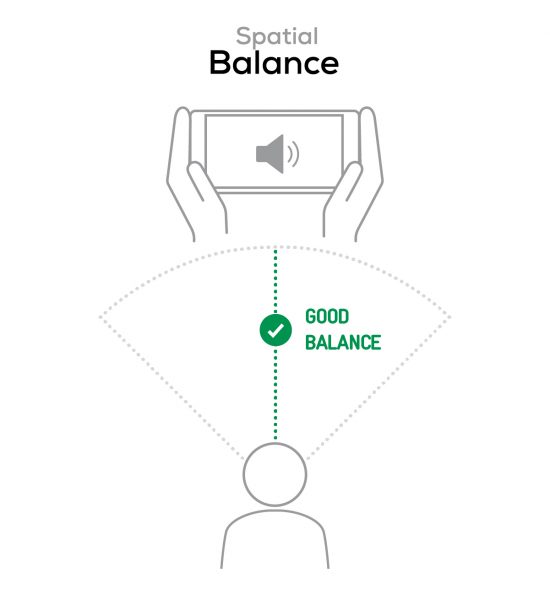
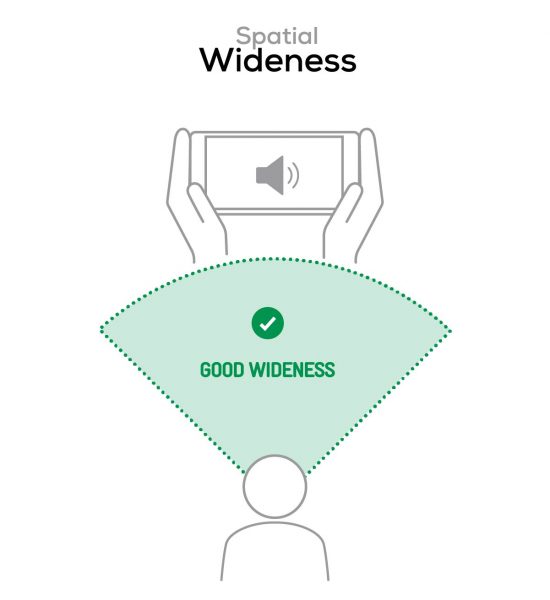
While decent, the sound source localization within the field could be more precise. Further, due to the lack of precision in the low midrange register, they are generally perceived to be a bit farther than they are.

Volume
Sony Xperia 1 III
49
91
Volume tests measure both the overall loudness a device is able to reproduce and how smoothly volume increases and decreases based on user input.
| Hip-Hop | Classical | |
| Xiaomi Mi 11 Ultra | 75.3 dBA | 70.4 dBA |
| Samsung Galaxy S21 Ultra 5G (Snapdragon) | 73.9 dBA | 71.2 dBA |
| Sony Xperia 1 III | 74.2 dBA | 67.9 dBA |
Despite Sony’s claims in this area, the Xperia 1 III’s volume performance leaves much to be desired. To begin with, at maximum volume, loudness isn’t above average, on the contrary.
As shown in the graph above, the volume steps distribution is far from being consistent from softest to loudest levels. Finally, minimum volume isn’t well tuned: all types of content — that is, regardless of their dynamic characteristics — aren’t intelligible enough.
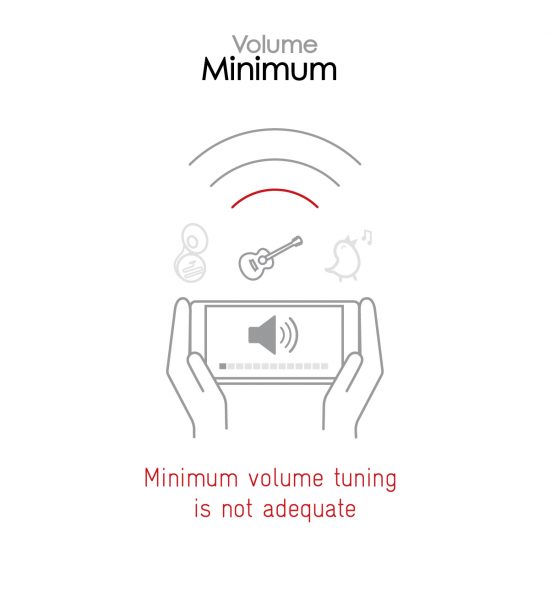
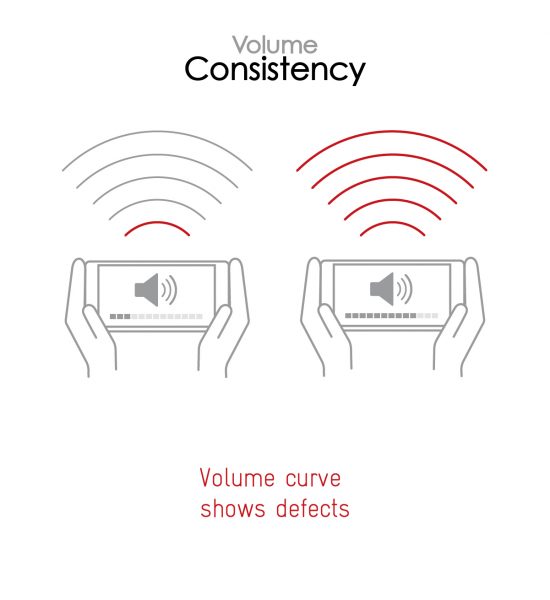

Artifacts
Sony Xperia 1 III
88
113
Artifacts tests measure how much source audio is distorted when played back through a device’s speakers. Distortion can occur both because of sound processing in the device and because of the quality of the speakers.
In the artifacts department, Sony keeps its promise: sounds played back through the Xperia 1 III’s speakers exhibit very few artifacts, aside from slight, occasional distortion at maximum volume. The overall reproduction is thus very clean, whether in respect to spectral or temporal artifacts.
User-induced artifacts are less discreet. For instance, pressing play after idle time will cause playback to start again with only the right (or bottom, depending on how the phone is oriented) speaker working for the first few seconds. Further, pressing the pause button generates a metallic sonic artifact. Finally, when using the video app, playback resumes automatically, whether when switching back from another app or waking the device — even if the video had been paused beforehand. Overall, the phone fares best when playing games, with absolutely no noise, temporal or spectral artifacts perceivable.
Recording

Timbre
Sony Xperia 1 III
71
91
In life and selfie videos, the overall tonal balance is fairly good and natural, with a clean midrange allowing a good capture of voices.
Meeting recordings also sound natural, but reveal a slight lack of power in the lower register. As for recordings made in loud environments, they are outright boomy: bass notes regularly trigger a severe dynamic compression, which affects the entire spectrum.

Dynamics
Sony Xperia 1 III
67
81
Again, selfie videos, life videos and meeting recordings fare best with a correct signal-to-noise ratio in both home and urban scenarios, while high SPL surrounding suffer from the previously mentioned compression triggered by bass hits. This strong compression, in turn, impairs higher percussions, such as snares, by crushing the transients.

Spatial
Sony Xperia 1 III
61
78
Spatial attributes in recorded audio files are decent overall. In life videos, wideness, localizability and distance are very satisfying. In selfie videos, while distance is also accurate, wideness is limited and localizability is imprecise. In meeting scenarios, all spatial characteristics are on target, including distance rendering.
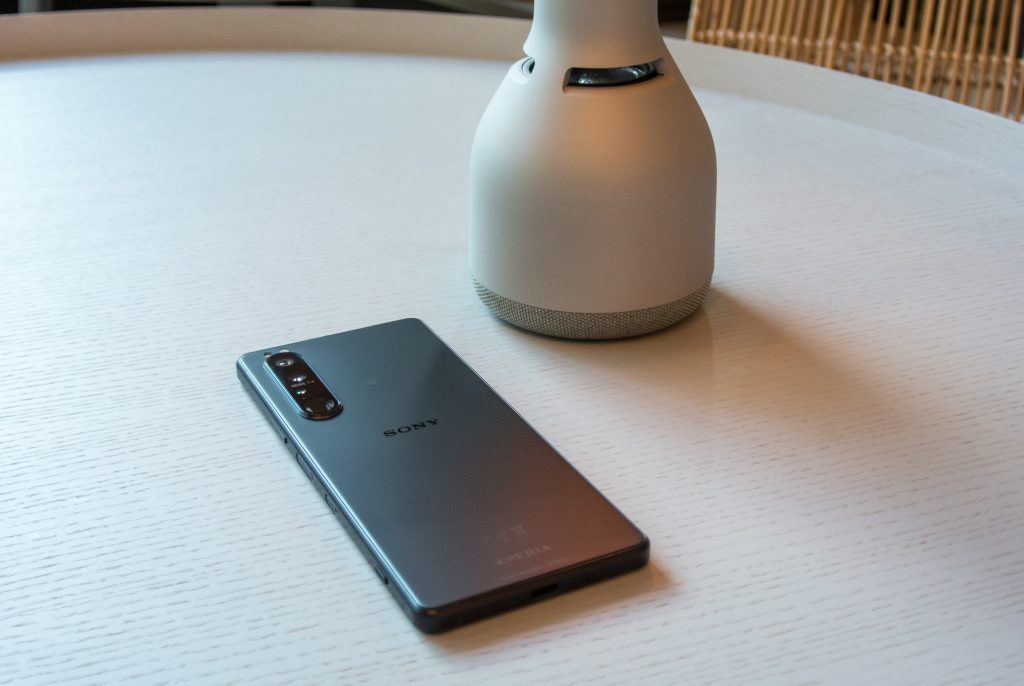

Volume
Sony Xperia 1 III
73
99
Unlike in playback, the Xperia 1 III’s volume performance in the recording area is well above average. The maximum level reachable without triggering perceivable sonic artifacts is excellent, and nominal loudness is satisfying across all use cases.
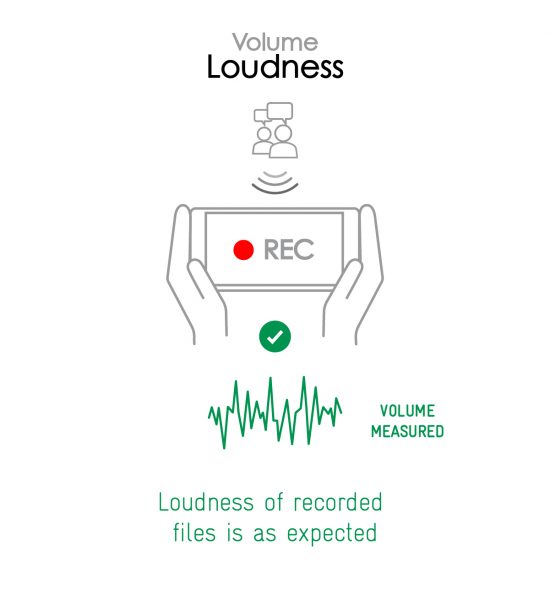
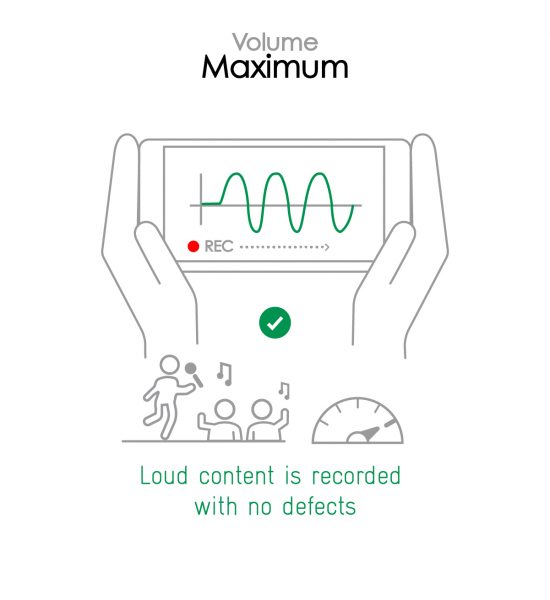
Here are our test results, measured in LUFS (Loudness Unit Full Scale). As a reference, we expect loudness levels to be above -24 LUFS for recorded content:
| Meeting | Life Video | Selfie Video | Memo | |
| Xiaomi Mi 11 Ultra | -30.9 LUFS | -22.8 LUFS | -21 LUFS | -21.9 LUFS |
| Samsung Galaxy S21 Ultra 5G (Snapdragon) | -26.9 LUFS | -19.5 LUFS | -22.2 LUFS | -22.4 LUFS |
| Sony Xperia 1 III | -30.5 LUFS | -22.4 LUFS | -20.2 LUFS | -21.3 LUFS |

Artifacts
Sony Xperia 1 III
72
97
In life and selfie videos, very discreet clipping can be noticed on shouting voices. In selfie videos only, they trigger a perceivable compression. When recording in loud environments, strong pumping and slight distortion are audible.
You can check for artifacts yourself in this sample recording:
The phone’s background recordings are decent, thanks to the natural tonal balance in life and selfie videos. That said, both indoor and outdoor scenarios can exhibit a strange background noise, which sounds a bit like distortion.
Conclusion
Despite an impressive list of audio features, sound turns out not to be the Xperia 1 III’s strongest point. In playback, while Sony’s latest and priciest phone makes an acceptable choice for gaming thanks to a natural and fairly wide sound reproduction and the practical low-latency headphones jack, we wouldn’t recommend it for playing music nor for watching movies. As a recording device, the Xperia 1 III is fairly good for videos (both life and selfie) and quiet meetings, but it proves to be deeply inadequate when it comes to recording in loud environments, such as concerts.


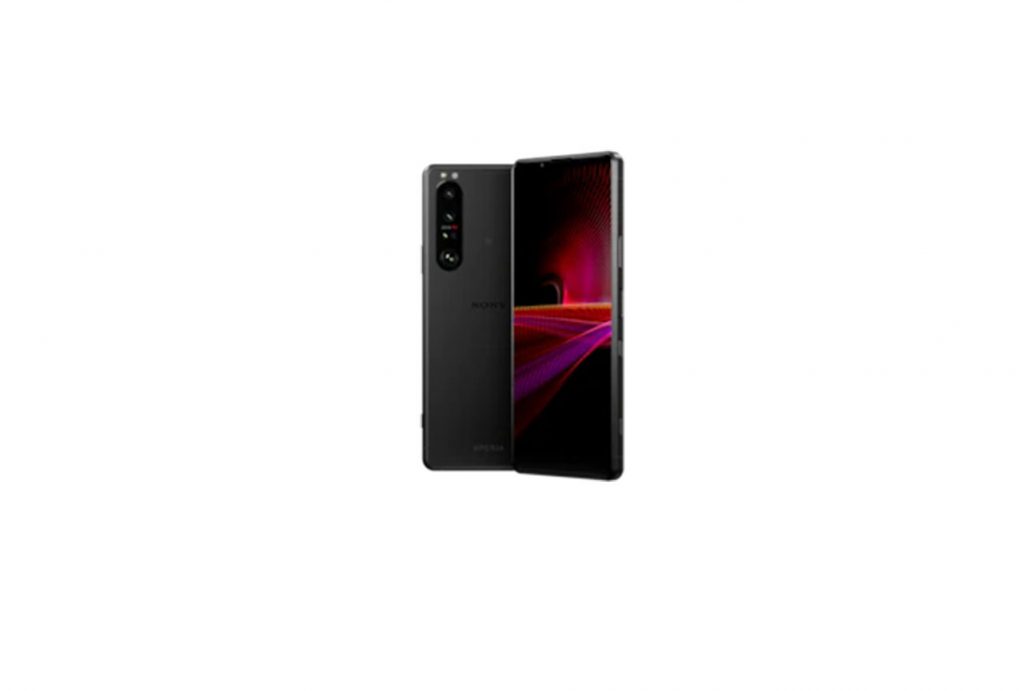

DXOMARK encourages its readers to share comments on the articles. To read or post comments, Disqus cookies are required. Change your Cookies Preferences and read more about our Comment Policy.